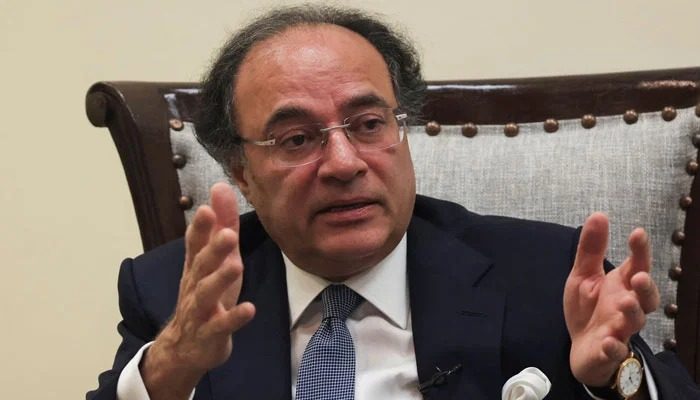Aurangzeb stressed to business leaders that “policy consistency is crucial,” unveiling plans for an advisory panel aimed at stabilizing and guiding Pakistan’s fragile economic landscape

By our correspondent
ISLAMABAD: Federal Finance Minister, Senator Muhammad Aurangzeb, has underscored the critical need for structural reforms if the country is to break free from its persistent reliance on International Monetary Fund (IMF) programs. Speaking at a meeting with a delegation from the US Business Council in Islamabad, Aurangzeb emphasized that while capital investment often takes center stage in economic discussions, Pakistan’s immediate priority lies in acquiring the necessary skills and expertise to implement meaningful reforms.
“Policy consistency is crucial,” Aurangzeb told business leaders, outlining government plans to establish an advisory panel designed to guide and stabilize economic decision-making. He highlighted efforts towards the full digitalization of Pakistan’s economy, stating that there is “no room for leakage in the value chain.” As part of this vision, experts are being recruited to strengthen the IT wing of the Federal Board of Revenue (FBR), which will play a central role in modernizing tax collection and improving transparency.
The meeting also provided an opportunity for the finance minister to discuss forthcoming budget proposals and address concerns raised by the business community. Aurangzeb reaffirmed the government’s commitment to a fair taxation regime across all sectors and updated attendees on recent engagements with the IMF and World Bank in Washington. He stressed the importance of broadening Pakistan’s tax base and ensuring an equitable distribution of the tax burden, highlighting these as vital steps for sustainable economic progress.
Reflecting a shared interest in long-term collaboration, the US Business Council recommended maintaining a continuous dialogue with Pakistani officials throughout the year rather than limiting consultations to the budget season. Both parties agreed that enhanced economic cooperation and closer bilateral ties would be essential to Pakistan’s development ambitions. Senator Aurangzeb’s remarks come amid ongoing economic challenges in Pakistan, where repeated IMF programs have provided short-term relief but failed to resolve deeper structural issues.
His focus on policy consistency, digital transformation, and fair taxation reflects a recognition that without fundamental changes, the cycle of dependence on external financial support is unlikely to end. For Pakistan’s economy to gain resilience and self-sufficiency, the minister suggested, it must invest not only in funds but also in the skills and systems necessary to execute reform effectively.



